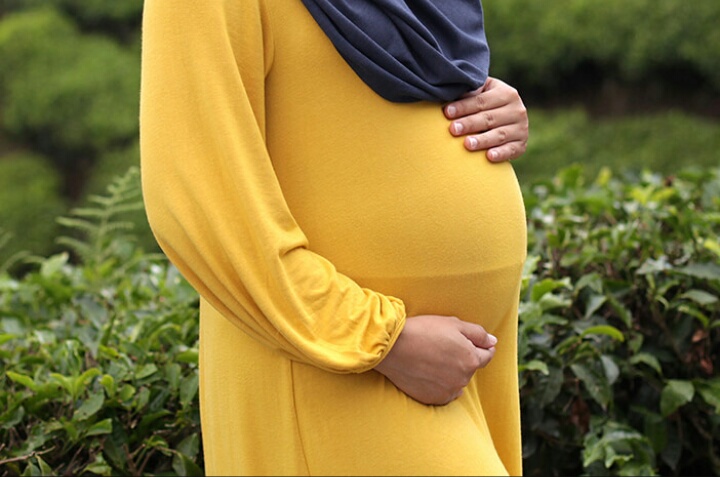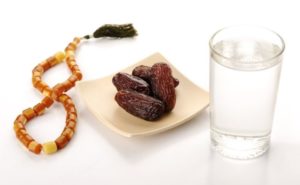The Islamic law of fasting for people in the month of Ramadan is mandatory, especially for those who have entered the age, understanding, not on the way (traveler), and not sick.
Meanwhile, the ruling on Muslim women is obliged if they are holy from menstruation and childbirth.
The compulsory fasting law also applies to women who are pregnant and breastfeeding. If the condition of this Muslim woman is healthy, not weak, not sick, and has no concern for the condition of the fetus that is conceived or the child is breastfed and herself, Muslim women are required to fast.
The physical condition of a woman who is pregnant and breastfeeding does tend to be different from the condition of women who are not in the condition. The calories needed to provide for babies for pregnant women around 2,200-2,300 calories per day. Meanwhile, for Muslim women who are breastfeeding it takes around 2,200-2,600 calories.
Also Read: Verses of the Universe in Gaza: The Unyielding Light of Faith
This condition has different consequences for mothers in facing fasting during Ramadan. There are those who feel fine and there are those who are not strong or worried if they have to fast.
The Prophet Muhammad in HR Ahmad said, “Verily Allah eliminates half travelers from prayers. Allah also removes fasting from travelers, pregnant women and breastfeeding women.”
In responding whether the mother who is not fasting has the obligation to make up for qadha or pay fidyah, there are many opinions about this.
In the first opinion of Imam Shafi’i, Imam Malik, and Imam Ahmad; Pregnant and lactating Muslim women who are not fasting during the month of Ramadan are obliged to make up for qadha and feed the poor according to the day of fasting that she left behind.
Also Read: Prophet Sulaiman Alaihi Salam, the Greatest Muslim King of All Time
The second opinion is from al-Auza’i, ats-Tsauriy, Abu Hanifah, and his students. They argue that Muslim women who are pregnant and breastfeeding are enough to make up their fasts or change their fasts on other days.
The third opinion of Ibn Abbas, Ibn Umar, Ishaq, and Sheikh al-Albani stated that it was enough to feed the poor without changing fasting.
Another opinion from Imam Malik and Shafi’iyah scholars who stated qadha only for pregnant women, while qadha and feed the poor for women who breastfeed according to the day he was not fasting.
Finally, the opinion of Ibn Hazm which says there is no need to qadha or feed the poor.
Also Read: Imaam Yakhsyallah Mansur: Surah At-Tin Indicates the Command to Liberate Al-Aqsa
Ibn Abbas issued by Ibn Jarud in al-Muntaqho and al-Baihaqi said, “Relief in this case for elderly people who are frail and elderly women and they are able to fast. They both break their fast if they want and feed the poor every day At this time there is no qadha for them.Then, this is removed with the verse (which means): “Therefore, whosoever among you is present (in the country of residence) that month, let him fast that month” However, this fidyah law still exists for elderly and frail elderly women if they are unable to fast, then for pregnant and breastfeeding women if they are afraid of danger, they may break their fast and not feed the poor every day.
From Nafi ‘, narrated by Ibn Umar, he once discussed this condition. In Irwa’ul Gholil (4/20) stated, “Daughter of Ibn Umar who married a Quraysh was pregnant. When fasting in the month of Ramadan, he felt thirsty. Then, Ibn Umar ordered his daughter to break the fast and feed the poor for every poor days left behind. ”
The method of paying fidyah is half the size of sho ‘dates, wheat, or rice as their family usually eats. The size of one sho’ is equal to around 2.5 to 3 kg.
The way to do it is to provide basic food that usually eats for the poor. If she has a debt of fasting for seven days, there are seven poor people, each given 1.5 kg of dates / rice / wheat.
Also Read: Imaam Yakhsyallah: Nurture Love for the Prophet, One Will Be with Whom One Loves
The second way is to make a food dish the size of a fidyah that is borne, then invite the poor and feed them until they feel full. For example, she has a debt of five days of fasting, invite five poor people to be fed. It’s better if the food is added with side dishes and vegetables.
Paying fidyah is not legal if it is done by giving money. The time for fidyah payment is that day when the fasting is not carried out or may also be terminated until the end of the month of Ramadan as Anas bin Malik did. Fidyah payments cannot be made before Ramadan. (AT/RE1)
Source: Republika
Mi’raj News Agency (MINA)
Also Read: Friday Sermon: Emulating the Firmness of the Prophet in Struggle










![Israeli tanks and APC’s gather by the Israeli – Lebanese border. Amid Israel’s escalating campaign against Hezbollah in Lebanon on September 30, 2024. [Erik Marmor/Getty Images]](https://en.minanews.net/wp-content/uploads/2024/10/IMG_20241001_203226-300x197.jpg)























 Mina Indonesia
Mina Indonesia Mina Arabic
Mina Arabic